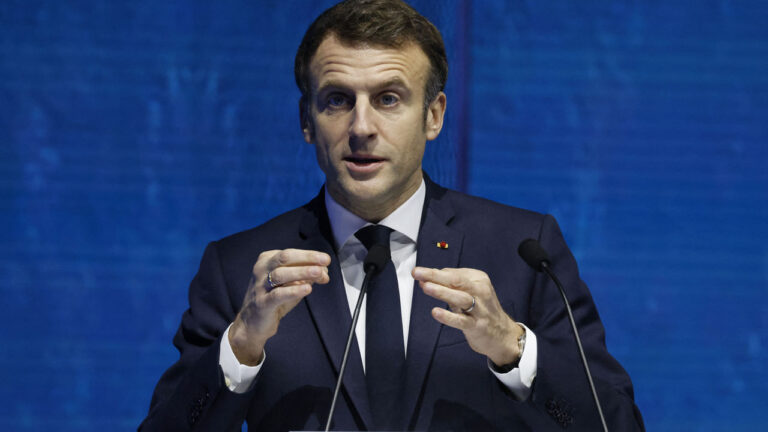
PARIS, July 11, 2024 (BSS/AFP) - French left-wingers attacked President Emmanuel Macron on Thursday after he called for a broad coalition government, demanding that their movement alone should propose a prime minister.
No single force won Sunday's second-round vote outright, though a broad alliance of Socialists, Communists, Greens and the hard-left France Unbowed (LFI) won the most seats, with 193 in the 577-strong National Assembly.
With no overall majority, the result left France rudderless at home, where it will host the Olympic Games in just over two weeks, and weakened abroad, where President Emmanuel Macron was in Washington for a NATO summit focused on Russia's invasion of Ukraine.
In an open letter to voters, Macron said Wednesday that "nobody won" the ballot.
He has left centrist Prime Minister Gabriel Attal in place and called on parties to find common ground for a broad coalition.
Socialist Party chief Olivier Faure accused Macron of failing to "respect the vote of the French people", while LFI figurehead Jean-Luc Melenchon blasted the "return of the royal veto".
Sophie Binet, head of France's biggest trade union federation, the CGT, also enlisted the image of France's long-defunct monarchy to attack the president.
"It's like having Louis XVI locking himself away in Versailles," she said, referring to the king guillotined in 1793 during the French Revolution.
"If (Macron) doesn't respect the result of the polls, he risks plunging the country into chaos once again," she said.
- 'Bring people together' -
The president's letter appeared to rule out a role for either LFI -- the largest player in the New Popular Front (NFP) left alliance -- or the far-right National Rally (RN) in the new coalition.
Voters from different camps joined forces in the second-round run-off to shut the RN out of power in a "republican front", allowing Macron's followers to claim second place with 164 seats and leaving the far right in third at 143.
With each of the three blocs controlling roughly one-third of the chamber, it may be a long slog to find a government able to survive a no-confidence vote.
"We can't form a national unity government with just one camp," Macron ally Francois Bayrou told AFP, calling for a prime minister able to "bring people together".
The conservative Republicans party -- once the vehicle of presidents like Jacques Chirac and Nicolas Sarkozy, but now reduced to 40 seats -- has refused to join a government coalition, but says it could vote to adopt a legislative programme.
Three-time RN presidential candidate Marine Le Pen meanwhile dismissed Macron's letter as a "disgraceful circus".
Her party now has its eyes firmly on France's next presidential election in 2027, when term limits mean Macron will not be able to stand again.
- Economic fears -
Macron arrived in Washington on Wednesday for a NATO summit where allies may now be weighing the prospect of French instability on top of the potential return of NATO-sceptic Donald Trump to the White House.
Macron did not speak to the press at the event.
Markets are also anxious, with warnings this week from ratings agencies that uncertainty over government finances could lead to credit downgrades for its over three-trillion-euro ($3.25 trillion) debt pile.
On Thursday, Bank of France governor Francois Villeroy de Galhau warned against the left's economic programme without naming the NFP specifically.
"In the economic competition, our small firms, our companies can't be weighed down with excessive wage costs, including the minimum wage, and by taxes that are too heavy," Villeroy told broadcaster Franceinfo.
The NFP vowed ahead of the polls both to increase the minimum wage and to raise taxes on companies and the wealthy.
Revenue would pay for welfare projects including reversing Macron's widely resented increase to the official retirement age.
"We spend a lot more than we pay in taxes, including on social spending and pensions," Villeroy said.
"That's what creates the budget deficit," he added, after the government overspent by 5.5 percent of GDP last year, well above the EU limit of three percent.